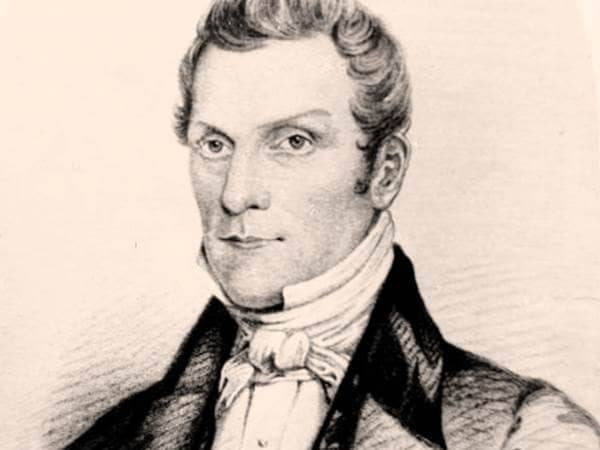
- Profession: Achorite
- Lived: November 8, 1342 - 1416 (Renaissance)
- Nationality: English
- Known for: Leading figure of Scholiasticism; one of two most influential Catholic thinkers, with Augustine.
- Fun Fact: Julian's "Revelations of Divine Love" is the earliest known English-language book by a woman.
- Fun Fact: Julian is probably best known for her accounting of Jesus reassuring her with the words: “All shall be well, and all shall be well, and all manner of thing shall be well.”
Julian of Norwich’s "Revelations of Divine Love," written in 1395, is the earliest known English-language book by a woman. In it, she speaks of God as father and mother, emphasizing God’s love and compassion, returning again and again to the metaphor of mother and child to describe God and Jesus’s relationship to people, and using language of labor and nursing. She is perhaps best known for two phrases from the book that express this loving compassionate God: “God is nearer to us than our own soul”; and most of all, Jesus reassuring her with the words: “All shall be well, and all shall be well, and all manner of thing shall be well.”
Julian was an anchorite (traditionally rendered anchoress for women). Being an anchorite was a popular ascetic contemplative path in the Middle Ages, especially in England. Anchorites lived away from society like hermits, but rather than living in a monastery or hermitage, they occupied a small quarters attached to a local church—an anchorhold. As someone entered this life, a kind of funeral rite was performed, declaring them dead to the world. Under obedience to the bishop but not an abbot or the local priests, the anchorite lived in this small enclosed space, receiving food and discarding waste with the help of others, and receiving eucharist and dispensing spiritual guidance through a small window to the outside world. No one is sure why she chose this path, and whether she had been a layperson or nun beforehand.
The basis of Julian’s book is a series of visions she had while suffering from the plague, from which she recovered. (One theory is that she chose to live as an anchoress because the rest of her family was wiped out, but this is just a guess.) While there are accounts of people, including other mystics, visiting Julian for guidance, she was not widely revered in her day. It’s assumed this, along with her being a lay woman, is why her radical theology was not attacked by church leaders at the time. But in the centuries following her death, her book was printed and reprinted. Recently, her radical theology, her loving portrayal of an intimate God, and her role as an important woman in Christian tradition have led to an explosion of popularity.
Julian of Norwich’s feast day is celebrated in the Anglican, Episcopal and Evangelical Lutheran churches. Though she is not officially venerated in the Roman Catholic Church, she is quoted in the Catechism and many expect she will be soon.
Julian was an anchorite (traditionally rendered anchoress for women). Being an anchorite was a popular ascetic contemplative path in the Middle Ages, especially in England. Anchorites lived away from society like hermits, but rather than living in a monastery or hermitage, they occupied a small quarters attached to a local church—an anchorhold. As someone entered this life, a kind of funeral rite was performed, declaring them dead to the world. Under obedience to the bishop but not an abbot or the local priests, the anchorite lived in this small enclosed space, receiving food and discarding waste with the help of others, and receiving eucharist and dispensing spiritual guidance through a small window to the outside world. No one is sure why she chose this path, and whether she had been a layperson or nun beforehand.
The basis of Julian’s book is a series of visions she had while suffering from the plague, from which she recovered. (One theory is that she chose to live as an anchoress because the rest of her family was wiped out, but this is just a guess.) While there are accounts of people, including other mystics, visiting Julian for guidance, she was not widely revered in her day. It’s assumed this, along with her being a lay woman, is why her radical theology was not attacked by church leaders at the time. But in the centuries following her death, her book was printed and reprinted. Recently, her radical theology, her loving portrayal of an intimate God, and her role as an important woman in Christian tradition have led to an explosion of popularity.
Julian of Norwich’s feast day is celebrated in the Anglican, Episcopal and Evangelical Lutheran churches. Though she is not officially venerated in the Roman Catholic Church, she is quoted in the Catechism and many expect she will be soon.
Back to Search Results






